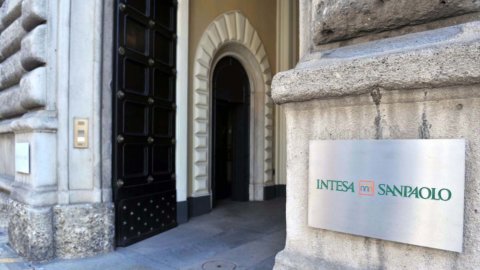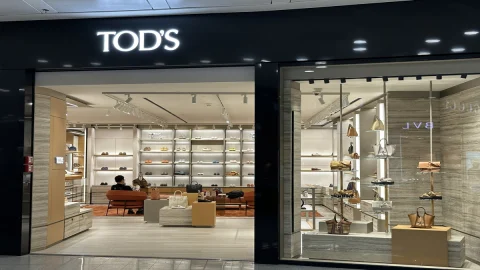ENDLESS COLLAPSE. MILAN LOSES 3,06%
THE BTP RETURNS 5,96%, SPREAD WITH THE BUND
A 333 The descent into hell never seems to end. By now it is evident that the markets are carrying out a stress test, the real one, on the willingness of the countries of the euro area to defend the common currency. It is a severe examination, carried out on several fronts: stock lists, public debt securities, derivatives. Above all, it is a test that is carried out on two battlefields: Italy and Spain. In short, the lightning-fast launch of the Finance Act or the positive outcome of the bank stress tests were of no use. The Milan Stock Exchange thus accentuated the drop during the afternoon, while stocks such as Unicredit and Mps were forced to suffer the volatility auction.
Meanwhile, the yield on Italian and Spanish government bonds was approaching the 7% non-return levels, beyond which, as demonstrated with Portugal, Greece and Ireland, there is a need outside help to avoid suffocating in debt. Meanwhile, the BTP has risen by 22 basis points to 5,96% and the differential with the Bund widens to 333 basis points, close to the maximum of 350 reached last week. Spain's bond yield rose 26 basis points to 6,27%.
SINCE JANUARY THE LOSS IS ABOVE 11%
THE SWISS FRANC AT AN HISTORIC HIGH
The Ftse Mib index of Piazza Affari closed at 17.885 points (-3,06%). In heavy decline, but with less extensive variations, Paris (-2,04%) and Frankfurt (-1,1%). The drop since the beginning of 2011 has thus exceeded the level of 10%. Even Madrid, which should also move in harmony with Milan, scores a decline from a strong country (-1%). Meanwhile, the euro plummeted against the Swiss franc to 1,149, a new all-time low, and also depreciated against the dollar to 1,404. As has always happened during turbulence, the only certainty remains gold, which has reached 1596 dollars an ounce, the eleventh consecutive session of rise and a new all-time high.
RELAXING WORDS FROM GERMANY: THE BAGS DON'T BELIEVE IT
FITCH ALSO THREATENS US DOWNGRADING
The risk is that uncertainty is destined to worsen in the coming days, pending the extraordinary summit between the heads of state and government of the Eurozone which, for now, does not bode well. The meeting, convened by the president of the European Union, Herman Van Rompuy, will concern the financial stability of the euro area and the future financing of the Greek programme. This morning, a spokesman for German Chancellor Angela Merkel said that an agreement should be reached on the go-ahead for Greece's second bailout plan at the July 21 summit, a statement that opens the door to a softening of Germany's position.
But the markets tend to give a "tactical" explanation for the statement in the opposite tone to Merkel's own words over the weekend. Meanwhile, August 2 is approaching and the rating agencies are putting further pressure on the US. The fears that Parliament will not be able to find an agreement on the public debt limit weigh down the United States Stock Exchange: Dow Jones index -1,2%, S&P500 index -0,65%, Nasdaq index -1,2%.
Today's pronouncement by Fitch contributes to fueling tensions, the creditworthiness assessment agency warned that if MPs do not vote to raise the public debt limit, the United States will be placed on negative credit watch. Republicans and Democrats remain distant, today the speaker of the House, the Republican John Boheme, said that his party will not accept any tax increases, exactly what the White House is asking: President Obama said who rich Americans owe pay more.
BANKS SINK: ALL BIG LOSE MORE THAN 5%
EXOR SUFFERS FROM THE DECREASE IN SGS ORPHAN OF MARCHIONNE
Better to let the numbers speak to summarize the Caporetto of Piazza Affari. The hardest hit is undoubtedly the banking sector, almost all forced to mark price in the volatility auction: Intesa - 6,51%, Unicredit -6,36% Banco Popolare -6,97%, MontePaschi -7,22% , Ubi -5,04% and Mediobanca -2,94%. Among the insurance companies, Fonsai fell by 7,88%, Generali fell by 3,75%. The large utilities also suffer: Enel (-1,84%) Eni (-1,75%) and A2A itself (-1,97%, on the day of the board meeting which was perhaps decisive for the fate of Edison. Losses are also widespread among industrials: Fiat (-4,37%), Prysmian (-3,115) Finmeccanica (-2,95) and Ansaldo.
Pirelli also fell, losing 0,4%: Exane-Bnp Paribas raised its rating from neutral to outperform. Mediobanca confirmed the "outperform" rating and raised the target price to 9 from 7,47 euro. The loss of Exor was significant (-3,73% to 20,41 euros) which was weighed down by the decline of the 15% investee Sgs, the first world-wide quality certification company managed by Segio Marchionne before his arrival at Fiat.
SGS presented quarterly data below expectations and warned that in the second half of the year the results in terms of operating profit could be penalized by the strength of the Swiss franc. SGS lost 7% on Friday and this morning recorded a drop of 1,5% to 1445 francs, the lowest since August 2010. The Swiss company, at current prices, capitalizes 11,27 billion francs, 9.88 billion euros. According to the calculations of an analyst, 15% of SGS is worth 17% of Exor's NAV.





